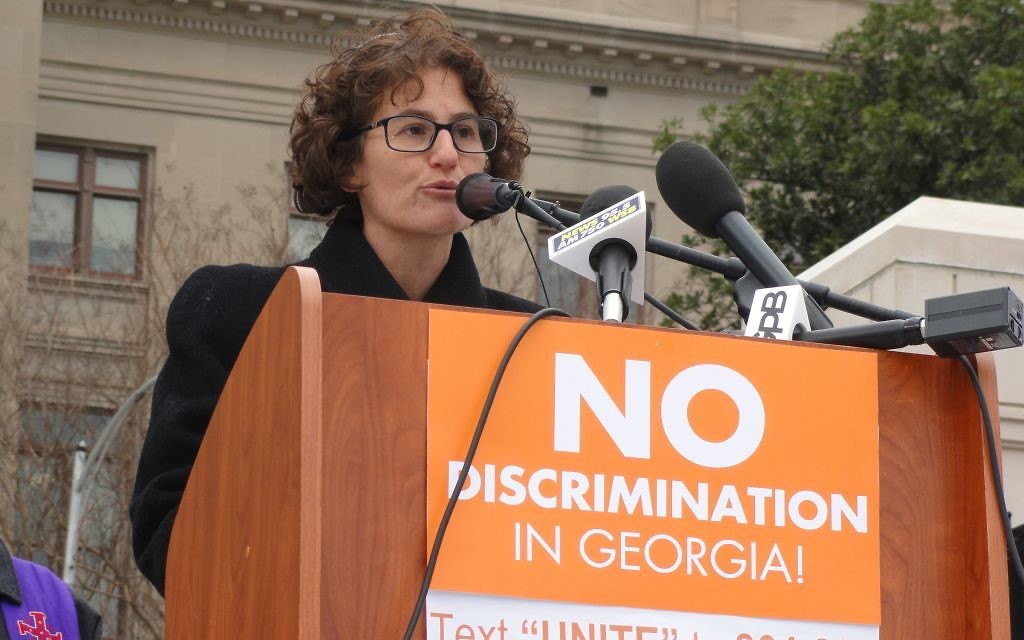ISN Panels Bring Magic to Interfaith Work
ISN panels are unlike interfaith panel discussions and dialogues among clergy members.

“Education is the most powerful weapon which you can use to change the world.” — Nelson Mandela
Returning from winter break, I feel accomplished. I completed my homework — an assignment I volunteered to do when all my students’ papers were graded and my report card narratives completed — for the Interfaith Speakers Network (ISN) of Atlanta.
I agreed to write the Judaism section of its training manual during winter break because I believe that the ISN is harnessing the power of education to change the world, one panel discussion at a time.
Get The AJT Newsletter by email and never miss our top stories Free Sign Up
The ISN is composed of faithful adherents to six traditions: Buddhism, Christianity, Hinduism, Islam, Judaism and Sikhism. These representatives serve on panel discussions that are educational and that promote conversation and understanding among people of different religions.
Each panelist has a few minutes to present the basic beliefs and practices of the particular faith tradition, then the audience has time to ask the questions they may have always wanted but never had the opportunity to ask.
The ISN goes wherever it is invited and teaches whoever wants to learn — middle and high school students, college students, American Red Cross disaster relief workers, and mental health care professionals.
The first time I served on a panel, it was in a county courthouse with a group of guardians ad litem who wanted to learn how to better serve their religiously diverse population.
Neither decades of experience as a matriculated student earning advanced and professional degrees in Jewish studies nor decades of teaching Jewish studies in my professional capacity as a rabbi and educator prepared me for the experience of serving on an ISN panel.
The ISN panels are unlike interfaith panel discussions and dialogues among clergy members. To be a presenter, one needs to be trained and certified, but this certification is not about one’s academic or pedagogic credentials. It is about mastering the methodology of speaking about the foundations of one’s own faith tradition with a generosity of spirit toward people of different faiths. It is about being able to hold fast to one’s own religious beliefs while accepting that others’ religious beliefs are as meaningful to them.
During the introduction portion, each panelist has only a few minutes to present three PowerPoint slides. Sometimes, if the panel is composed of only the Abrahamic faiths, the speakers for Judaism, Christianity and Islam have a full 10 minutes each.
The information on these introductory slides is designed to highlight similarities and universal truths among the religions, as well as note differences in beliefs and particular practices of each religion. A moderator from the ISN serves as the timekeeper to ensure ample time for questions.
Then the Q&A begins; this when the magic happens.
Every. Single. Time.
The moderator facilitates the Q&A, maintaining a balance of questions and flow of conversation among all the panelists, keeping the participants’ questions on topic and the panelists on task.
The panelists, even if they have never met before the event, model how to have a conversation about religion in which everyone is genuinely interested in and learning from one another.
In this unscripted interaction, it is apparent that a solidarity has developed among the panelists during the course of the presentation. Perhaps it is the simple act of serving together that strengthens the friendship and community among the panelists. Perhaps it is something greater, like a shared commitment to education as tikkun olam, repairing the world.
Personally, I believe that whenever the ISN gathers a panel together and ignites a spark of human connection, G-d is present.
Rabbi Pamela Jay Gottfried is the dean of Jewish studies at the Weber School and a Rabbis Without Borders fellow.




comments